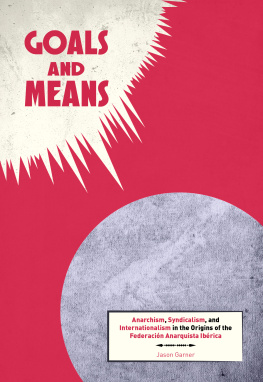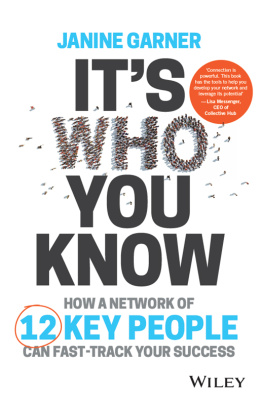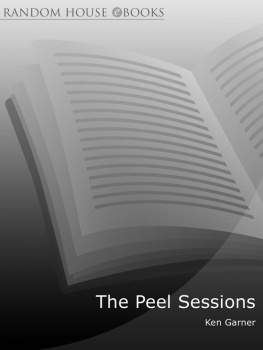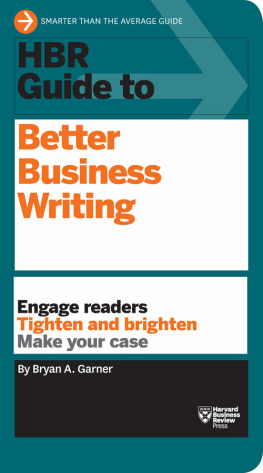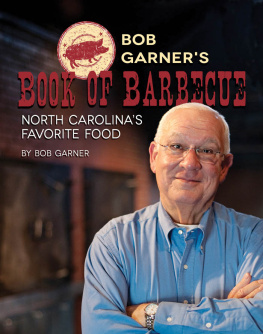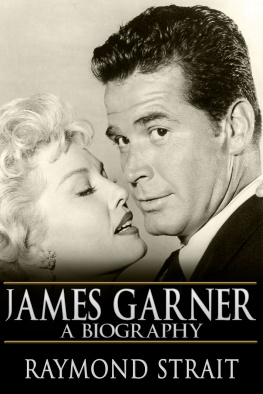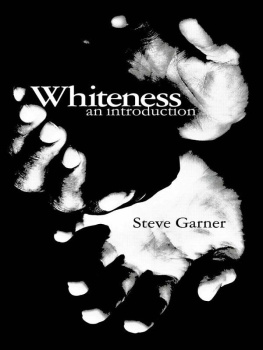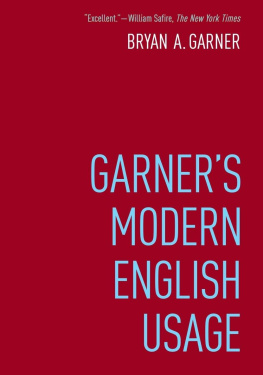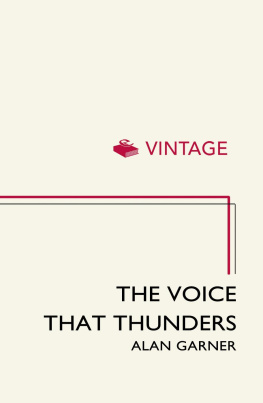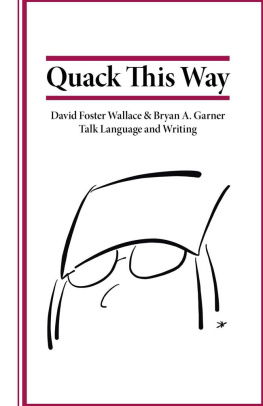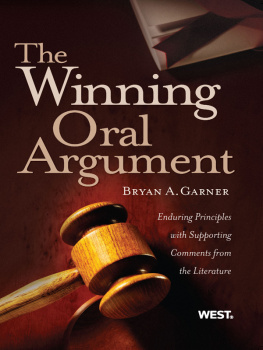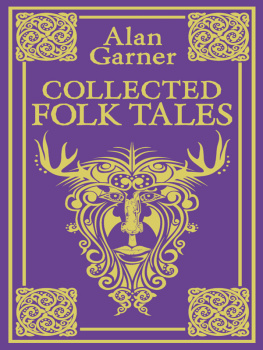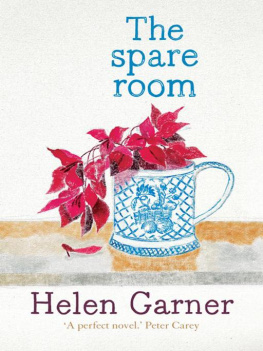Garner - The Winning Brief
Here you can read online Garner - The Winning Brief full text of the book (entire story) in english for free. Download pdf and epub, get meaning, cover and reviews about this ebook. genre: Detective and thriller. Description of the work, (preface) as well as reviews are available. Best literature library LitArk.com created for fans of good reading and offers a wide selection of genres:
Romance novel
Science fiction
Adventure
Detective
Science
History
Home and family
Prose
Art
Politics
Computer
Non-fiction
Religion
Business
Children
Humor
Choose a favorite category and find really read worthwhile books. Enjoy immersion in the world of imagination, feel the emotions of the characters or learn something new for yourself, make an fascinating discovery.

- Book:The Winning Brief
- Author:
- Genre:
- Rating:4 / 5
- Favourites:Add to favourites
- Your mark:
- 80
- 1
- 2
- 3
- 4
- 5
The Winning Brief: summary, description and annotation
We offer to read an annotation, description, summary or preface (depends on what the author of the book "The Winning Brief" wrote himself). If you haven't found the necessary information about the book — write in the comments, we will try to find it.
The Winning Brief — read online for free the complete book (whole text) full work
Below is the text of the book, divided by pages. System saving the place of the last page read, allows you to conveniently read the book "The Winning Brief" online for free, without having to search again every time where you left off. Put a bookmark, and you can go to the page where you finished reading at any time.
Font size:
Interval:
Bookmark:
THE WINNING BRIEF
OTHER BOOKS BY THE AUTHOR
Garners Modern American Usage
(Oxford Univ. Press, 1998; 2d ed. 2003)
A Dictionary of Modern Legal Usage
(Oxford Univ. Press, 1987; 2d ed. 1995)
The Elements of Legal Style
(Oxford Univ. Press, 1991; 2d ed. 2002)
The Redbook: A Manual on Legal Style
(West, 2002)
Legal Writing in Plain English
(Univ. of Chicago Press, 2001)
Securities Disclosure in Plain English
(CCH, 1999)
Guidelines for Drafting and Editing Court Rules
(Admin. Office of the U.S. Courts, 1996)
The Rules of Golf in Plain English (coauthor)
(Univ. of Chicago Press, 2004)
BOOKS EDITED BY THE AUTHOR
Blacks Law Dictionary
(West, 7th ed. 1999; 8th ed. 2004)
Blacks Law Dictionary (pocket edition)
(West, 1996; 2d ed. 2001)
A Handbook of Basic Law Terms
(West, 1998)
A Handbook of Business Law Terms
(West, 1999)
A Handbook of Criminal Law Terms
(West, 2000)
A Handbook of Family Law Terms
(West, 2001)
Texas, Our Texas: Reminiscences of The University
(Eakin Press, 1984)
100 TIPS FOR PERSUASIVE BRIEFING
IN TRIAL AND APPELLATE COURTS
Second Edition
Bryan A. Garner


Oxford New York
Auckland Bangkok Buenos Aires Cape Town Chennai
Dar es Salaam Delhi Hong Kong Istanbul Karachi Kolkata
Kuala Lumpur Madrid Melbourne Mexico City Mumbai Nairobi
So Paulo Shanghai Taipei Tokyo Toronto
Copyright 2003 by Oxford University Press, Inc.
Published by Oxford University Press, Inc.
198 Madison Avenue, New York, New York 10016
www.oup.com
Oxford is a registered trademark of Oxford University Press
All rights reserved. No part of this publication may be reproduced,
stored in a retrieval system, or transmitted, in any form or by any means,
electronic, mechanical, photocopying, recording, or otherwise,
without the prior permission of Oxford University Press.
Library of Congress Cataloguing-in-Publication Data
is available
ISBN 0-19-517075-X
In memory of Mariellen Griffin Garner 19311994
THE WINNING BRIEF
100 Tips for Persuasive Briefing in Trial and Appellate Courts
The persuasive style requires two qualities: clearness and simplicity. If it is lacking in either of these it fails to persuade.
Demetrius Phalereus
On Style 250 221 (ca. 300 B.C.;
T.A. Moxon trans., 1943).
If all the blunders of clever advocates were to be told, the student would come to the conclusion that practice makes us most imperfect; and that the art is more calculated to benumb the faculties than to quicken them. No one is more conscious of his faults than he who commits the fewest. One thing is certain: Advocacy never can be mastered; and the most we can do is to learn a little and unlearn a great deal.
Richard Harris
Hints on Advocacy 312 (17th ed. 1937).
[T]he written word is irrevocable. If it fails to convince or persuade the reader, there is no opportunity to switch to other ground. You make your play, and you cannot renege.
Edward N. Teall
Putting Words to Work 146 (1940).
[T]here are many good briefs that dont win cases, and assuredly there are poor ones (including some exceptionally poor ones) that do. But a brief that didnt win, however close to perfection it may have come, just wasnt an effective brief. [I]t didnt persuade the court.
Frederick B. Wiener
Briefing and Arguing Federal
Appeals 125 (rev. ed. 1967).
In law, the quality of writing matters. Good writing can win cases, and bad writing can lose them. To some, this notion is self-evident. But to others its dubious at best.
What explains these markedly divergent views? Ultimately, the disagreement hinges on the extent to which a given lawyer understands how language molds every human thought. Language is embedded in the very way we perceive the world. So its impossible for a lawyer or a judge to focus exclusively on the merits of a case without being affected by the language used to express those merits.
When you write a brief, your implicit promise is that youll give the judge good reasons for ruling as you request. This is all that matters: successfully persuading the judge to rule in your clients favor. Brief-writers tend to pity themselves and complain about judicial readers and their shortcomingsnot reading closely enough, not allowing you enough pages, delegating study to law clerks, etc. But good brief-writers turn their complaints into challengeschallenges to mastering the writerreader relationship. An objective observer would probably sympathize with some degree of self-pity because of the immense challenges you face. But an objective observer would probably pity your readers, too.
Until you understand why brief-readers should be pitied, you cant possibly write good briefs. Think of the judges reading life. An endless stream of paper passes before the judges eyes, with too little time to study each case in searching detail before the stream stagnates, becomes a massive stack of paper, and then becomes a fire hazard. And what does the stack consist of? Lots of rote phrases at the beginning and end of each document, loads of boring sameness, with everything spread out gradually through the middlebecause the writers either cant or wont summarize. Sometimes law clerks read the briefs, not judges. It doesnt matter. Whoever the reader is, one thing is certain: run-of-the-mill brief-writing is pretty bad. Its slow and dull and abstract and digressive.
Its sobering to think that bad briefs can lose strong cases. But this surely happens all the time. Judge Thomas M. Reavley of the Fifth Circuit convincingly cites a case in pointa case that was very nearly decided wrongly because of bad briefing.
It was a wrongful-death case against the federal government, involving a patient who had been negligently misdiagnosed by Veterans Administration doctors. They told him he had a hernia that couldnt be operated on until he first lost weight. Actually, though, he had a tumor in his colon, which soon burst. He underwent emergency surgery and survived, but his blood transfusion infected him with HIV, and he eventually died of AIDS.
At trial, the decedents family was awarded a judgment of $700,000. The VA appealed, filing what Judge Reavley called a 28-page hide-the-ball brief. In it, the government lawyer danced around the real issues and made various irrelevant arguments. The plaintiffs lawyer responded with a 32-page brief that didnt uncover the ballit too was cluttered with fuzzy fact summaries and unconnected legal points.
Neither sides brief accomplished what it was supposed to do: focus the appellate courts attention on the issues. And this in what Judge Reavley called a very simple case:
The judgment found clear support in the evidence. But you would not know it from reading the briefs. And the appellate judge who got the case on the summary calendar wrote an opinion reversing the judgment. Fortunately, the next judge on the summary panel chose to let the case be argued. I was on the oral-argument panel. The argument shed no more light than the briefs did. But I read the record and, seeing ample support for the findings, affirmed. It was an excellent example of what ails us, and I assure you that this is not an unusual story.
Next pageFont size:
Interval:
Bookmark:
Similar books «The Winning Brief»
Look at similar books to The Winning Brief. We have selected literature similar in name and meaning in the hope of providing readers with more options to find new, interesting, not yet read works.
Discussion, reviews of the book The Winning Brief and just readers' own opinions. Leave your comments, write what you think about the work, its meaning or the main characters. Specify what exactly you liked and what you didn't like, and why you think so.

